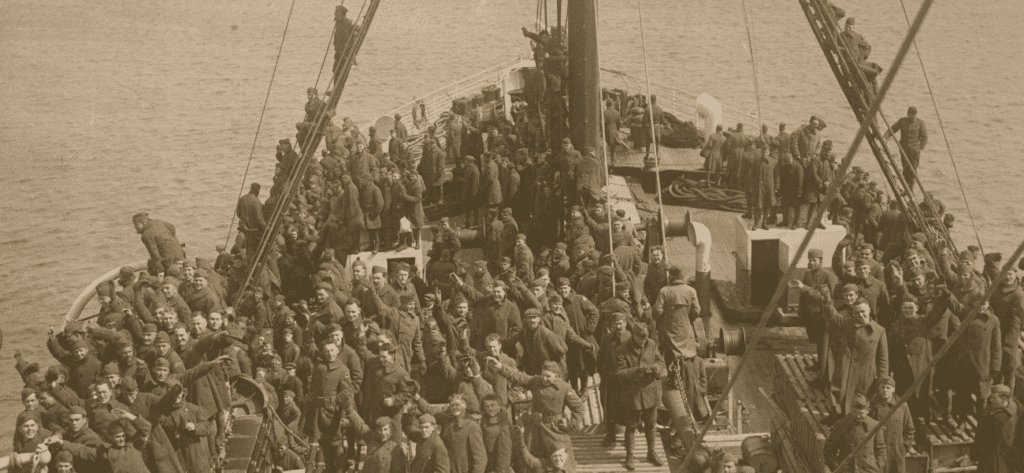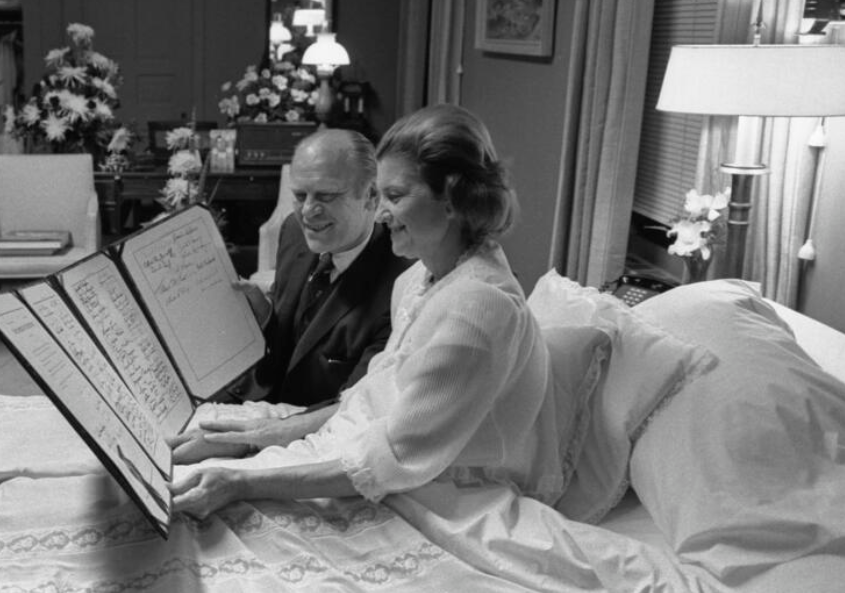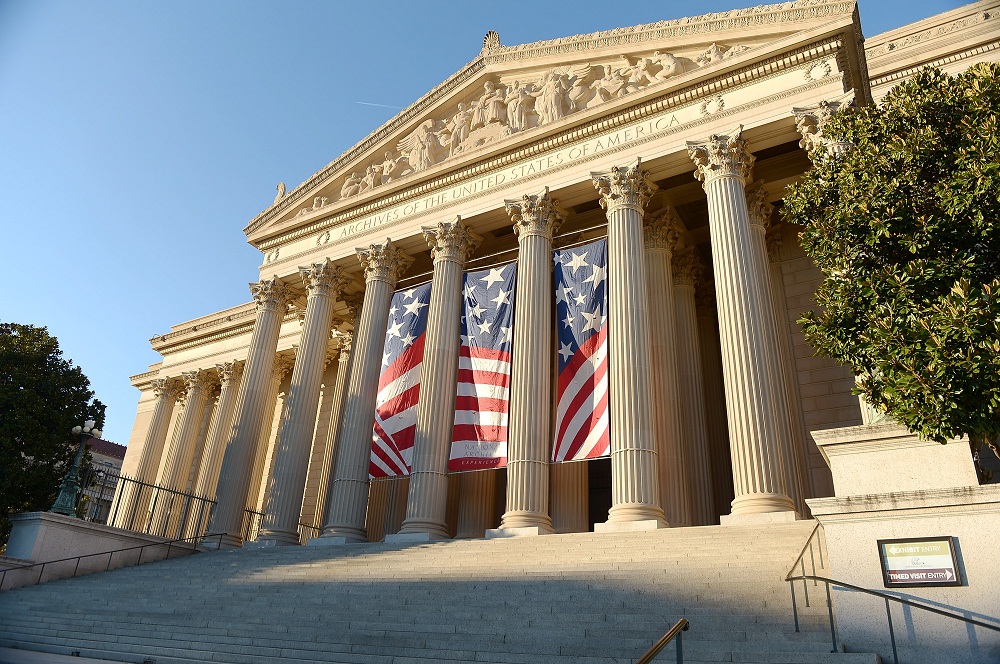Harvey Milk Writes to the President
Friday, May 31, 2024 – Monday, June 17, 2024
East Rotunda Gallery

Human Rights at the Ballot Box
In 1978, Californians voted on Proposition 6, which would have banned gay men and lesbians from teaching or otherwise being employed by California school districts. The initiative sponsored by State Senator John Briggs was opposed by a number of leading politicians, including former Governor Ronald Reagan and former President Gerald Ford. The Briggs Initiative was ultimately defeated at the polls in November 1978.
Harvey Milk, a gay man elected to the San Francisco Board of Supervisors in 1977, gave a rousing speech at the city’s 1978 Gay Freedom Day celebration. In it, he challenged State Senator John Briggs, who had sponsored the ballot proposition to ban gays and lesbians from working for California school districts.
Milk emphatically claimed that gays and lesbians were equally entitled to the benefits of freedom and equality.
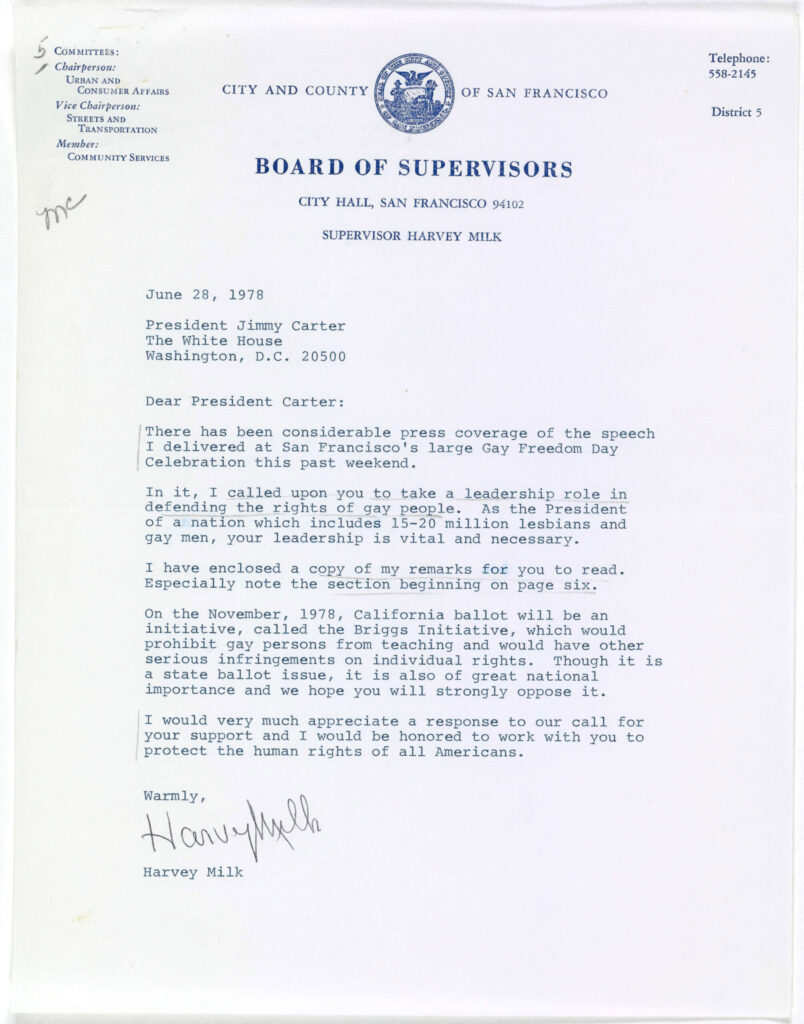

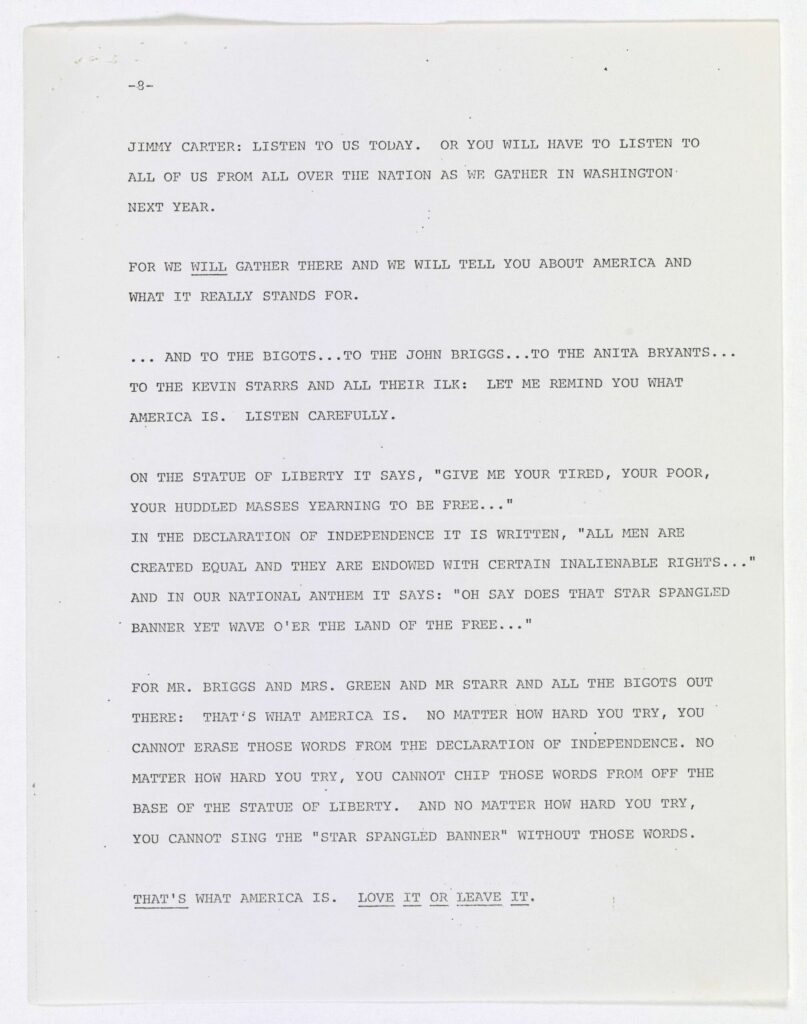

On the Statue of Liberty it says, “Give me your tired, your poor, your huddled masses yearning to be free . . . .” In the Declaration of Independence it is written “All men are created equal and they are endowed with certain inalienable rights . . . .” That’s what America is. No matter how hard you try, you cannot erase those words from the Declaration of Independence. No matter how hard you try, you cannot chip those words from off the base of the Statue of Liberty.

